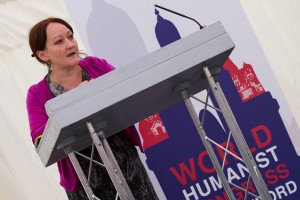Labour’s ‘Final year policy consultation documents’ – response and suggested amendments from Labour Humanists
*We have now submitted these amendments to Labour’s Your Britain policy review website. Members can view, comment and vote in support of these papers on education, communities, politics and Britain’s global role*
Following a review of its core policies, Labour has published eight policy papers for consultation. Those papers will form the basis of Labour’s One Nation Manifesto so it is crucial that humanists and secularists within the Party have their say, and encourage their CLPs to do the same. Below is Labour Humanists’ review of four of the papers most relevant to our work, with suggested amendments. You can also download our response.
CLPs and affiliates are entitled to propose textual amendments, and individuals and external organisations can make submissions until 13 June 2014.
Every CLP is entitled to propose up to ten amendments, which National Policy Forum representatives can then choose to bring forward to a meeting of the NPF in July.
The final papers will then be adopted by Annual Conference in September as Labour’s official policy programme ahead of the election next year.
Information from the Labour Party about how you and your CLP or organisation can get involved and make amendments to Labour’s final year policy consultation documents.
Summary of Labour Humanists’ suggested amendments:
Under ‘Equalities’ insert:
Suggested amendment (1)
Religion or Belief
Labour will commit to tackling the many special exemptions from equalities legislation afforded to religious groups which allow them to discriminate even when operating in the public sphere such as in employment, in the provision of public services, and in schools. These are anomalies in the current law which are unnecessary, unjust, privilege religious groups, and are completely against Labour’s commitment to equality.
Suggested amendment (2)
Marriage
Labour has shown its commitment both to equal marriage for same-sex couples and to making humanist marriage have legal recognition in England and Wales (humanist marriage has been legally recognised in Scotland since 2005). In Parliament, the Labour frontbench team led amendments for reform to have equality in marriage law between religious and non-religious people for the first time. Labour recognises that the legalisation of humanist marriage will take nothing away from anyone but will give many thousands of couples that chance to have the legal marriage they want. Labour will ensure that humanists in England and Wales will be able to have a legal marriage ceremony that reflects their own beliefs conducted by a celebrant who also shares them.
Under ‘Political Reform’ insert:
Suggested amendment (3)
Labour will promote equality and work against religious privilege in Parliament by reforming the House of Lords to end the undemocratic ‘right’ for the Church of England to sit in our parliament. Labour will ensure that Church of England bishops, and any other clergy or religious representatives, will be able to stand for election or be eligible for appointment to a reformed House of Lords but on the same basis as everyone else, with no reserved seats for any religious representatives.
Page 4 insert:
Suggested amendment (4)
Labour’s commitments to equality and to improving teacher quality are at odds with the present legal exemptions allowing many state-funded faith schools to discriminate against teachers and teaching staff on religious grounds. The next Labour Government will work ensure that no state-funded faith school can hire, fire, or set a ceiling on promotion for, suitably qualified teachers on religious grounds.
Page 6, after line 39, insert:
Suggested amendment (5)
Ending the divisive school system and instead ensuring that each school meets the One Nation ideal of serving its local community also means ending religious selection in admissions to state schools. The next Labour Government will stop the establishment of new schools that select pupils by faith and phase out entirely religious selection by current schools.
*For other suggested amendments relating to religious selection in admissions, contact info@labourhumanists.org.uk
On page 3 insert:
Suggested amendment (6)
Labour understands freedom of thought and belief – including religious and non-religious beliefs – and free expression to be human rights and the cornerstone of any free and democratic society, and will defend them robustly at home and internationally, including through opposing blasphemy laws.
Under ‘Delivering localism to our communities’ insert:
Suggested amendment (7)
Labour will make legislative and other reform to ensure that public services are equal, inclusive, and protect and promote human rights. In practice, Labour will ensure that all organisations, including religious groups working under public contract to provide public services, must operate in an inclusive, secular way, meaning:
- No discrimination on religious or other grounds in employment
- No discrimination on religious or other grounds against service users
- No religious element part of the service, including prayers or proselytising
Full response with amendments
Better Politics
We strongly support the direction of this paper. As humanists, we are committed to human rights, democracy, equality and mutual respect. We support moves to increase understanding of democracy and active civic participation. We believe the community should provide education that helps children and young people to develop knowledge, judgement and skills – including skills of moral thinking and citizenship – so we are pleased to see those sentiments reflected in a commitment to quality citizenship education in schools and beyond.
We want a society where there is a culture of respect for human rights. We are glad to see a commitment to strengthening human rights and to defending the Human Rights Act (HRA). The law is vital for protecting rights such as freedom of expression and speech, currently under attack from some religious groups.
We would like to Labour to commit to ensuring all organisations, including religious groups, providing statutory public services on behalf of the state are bound by the HRA, in order to provide much better protection for service users. Read more on our approach to secular public services below under ‘Safer, Stronger Communities’.
We are pleased to see a strong focus on equalities. However, we would like Labour to go much further and commit to tackling the many exemptions from equalities legislation afforded to religious groups which allow them to discriminate even when operating in the public sphere such as in employment, in the provision of public services and in schools. The exemptions from the law to which all other organisations are bound are unnecessary, unjust, privilege religious groups, and are completely against Labour’s commitment to equality.
Parliament. We submitted a paper to the policy review specifically on Bishops in the Lords. We’d like Labour to be more specific in the commitment to House of Lords reform and have a clear and principled policy against religious privilege in our Parliament, to include the following:
- End the undemocratic ‘right’ for the Church of England to sit in our parliament
- No reserved seats for any religious representatives
- Allow Church of England bishops, and any other clergy or religious representatives, to stand for election or be eligible for appointment to a reformed Lords but let that be on the same basis as everyone else
- Promote equality and campaign against privilege in our democratic arrangements
Under ‘Equalities’ insert:
Suggested amendment (1)
Religion or Belief
Labour will commit to tackling the many special exemptions from equalities legislation afforded to religious groups which allow them to discriminate even when operating in the public sphere such as in employment, in the provision of public services, and in schools. These are anomalies in the current law which are unnecessary, unjust, privilege religious groups, and are completely against Labour’s commitment to equality.
Suggested amendment (2)
Marriage
Labour has shown its commitment both to equal marriage for same-sex couples and to making humanist marriage have legal recognition in England and Wales (humanist marriage has been legally recognised in Scotland since 2005). In Parliament, the Labour frontbench team led amendments for reform to have equality in marriage law between religious and non-religious people for the first time. Labour recognises that the legalisation of humanist marriage will take nothing away from anyone but will give many thousands of couples that chance to have the legal marriage they want. Labour will ensure that humanists in England and Wales will be able to have a legal marriage ceremony that reflects their own beliefs conducted by a celebrant who also shares them.
Under ‘Political Reform’ insert:
Suggested amendment (3)
Labour will promote equality and work against religious privilege in Parliament by reforming the House of Lords to end the undemocratic ‘right’ for the Church of England to sit in our parliament. Labour will ensure that Church of England bishops, and any other clergy or religious representatives, will be able to stand for election or be eligible for appointment to a reformed House of Lords but on the same basis as everyone else, with no reserved seats for any religious representatives.
Education and Children
A third of state-funded faith schools have a religious character. These are commonly known as faith schools. Given their significance, it is surprising and disappointing that there is no specific mention of faith schools in the policy paper. We will be urging for a number of amendments to be made to make tackling discrimination by state-funded faith schools a core policy priority for One Nation Labour.
We would like to see a commitment from Labour to ensure all state-funded schools uphold principles of equality and do not discriminate on religious grounds in employment or admissions. We support a broad and balanced curriculum including teaching: about non-religious beliefs such as Humanism as well as different religious beliefs; comprehensive PSHE and SRE; science including evolution. We would like Labour to oppose any teaching of creationist theories as valid scientific theories.
Together with Tom Copley, Labour London Assembly Member, we made a submission on faith school admissions. All types of state-funded schools with a religious character are permitted to select in their admissions by discriminating on religious grounds. This even includes those whose admissions are controlled by the local authority if that authority allows it, faith Academies and Free Schools. Labour should guarantee that children will not be turned away from their local school on the basis of their parents’ beliefs. We firmly believe this would be a popular policy and likely vote winner. We would like Labour to consider the following policy options:
- No new faith school allowed to discriminate in its admissions
- No existing faith school allowed to discriminate in admissions in the future
It is vital that a commitment to inclusive admissions with no religious discrimination by faith schools permitted is in Labour’s 2015 manifesto.
Quality teaching. In a recent article and in a joint submission with the British Humanist Association (BHA) to Labour’s call for evidence on improving teacher quality, we make clear that faith-based discrimination in employment is unfair on teachers and pupils, unnecessary, and in all likelihood usually unlawful.
All types of faith schools (around a third of state-funded schools), from those under Local Authority control to Academies and Free Schools, have the ability to place religious requirements on teaching positions. In reality, some religious authorities think that they have the right to know the intimate details of teachers’ private lives and to use that information to determine whether they can have a job or get a promotion. Or at worst and regardless of how well qualified a teacher is, use personal information to discipline and dismiss on the grounds that her conduct outside of work is ‘incompatible with the precepts’ of the school’s religion.
We support Labour’s moves to improving teacher quality but if the Party is serious about the value quality teaching it must address urgently the issue of discrimination against teachers in state-funded faith schools.
Page 4 insert:
Suggested amendment (4)
Labour’s commitments to equality and to improving teacher quality are at odds with the present legal exemptions allowing many state-funded faith schools to discriminate against teachers and teaching staff on religious grounds. The next Labour Government will work ensure that no state-funded faith school can hire, fire, or set a ceiling on promotion for, suitably qualified teachers on religious grounds.
Page 6, after line 39, insert:
Suggested amendment (5)
Ending the divisive school system and instead ensuring that each school meets the One Nation ideal of serving its local community also means ending religious selection in admissions to state schools. The next Labour Government will stop the establishment of new schools that select pupils by faith and phase out entirely religious selection by current schools.
*For other suggested amendments relating to religious selection in admissions, contact info@labourhumanists.org.uk
Britain’s Global Role
We support Labour’s commitment to internationalism, to tackling poverty and to promoting social justice in our country and abroad. Regarding human rights specifically, we would like to see a commitment to defending freedom of thought and belief. The Freedom of Thought report, published earlier this year by the International Humanist and Ethical Union (IHEU), surveys the discrimination and persecution against non-religious people in every country in the world and finds that ‘the overwhelming majority of countries fail to respect the rights of atheists and freethinkers’. Freedom of thought and belief – including religious and non-religious beliefs – are human rights and the cornerstone of any free and democratic society and should be robustly defended.
On page 3 insert:
Suggested amendment (6)
Labour understands freedom of thought and belief – including religious and non-religious beliefs – and free expression to be human rights and the cornerstone of any free and democratic society, and will defend them robustly at home and internationally, including through opposing blasphemy laws.
Stronger, Safer Communities
This paper covers a number of areas, from criminal justice to tackling violence against women and girls, and local public services. We support the direction of this paper regarding building stronger communities. We want a society where all individuals feel empowered as members of a democratic community to influence decisions made about their lives. We believe this can only happen in a society where people are not labelled or divided by their beliefs and where all voluntary and community groups and all volunteers are treated equally.
We made a submission to this Commission focusing on human rights and equalities, public services and religious organisations. However the importance of non-discrimination in services is not especially highlighted in Labour’s policy paper. We strongly believe that Labour should take action and have a clear policy to ensure public services are equal, inclusive, and protect and promote human rights. All organisations, including religious groups working under public contract to provide public services, must operate in an inclusive, secular way. In practice that would mean:
- No discrimination on religious or other grounds in employment
- No discrimination on religious or other grounds against service users
- No religious element part of the service, including prayers or proselytising
It is vital that a commitment to inclusive public services with no religious discrimination is in Labour’s 2015 manifesto.
Under ‘Delivering localism to our communities’ insert:
Suggested amendment (7)
Labour will make legislative and other reform to ensure that public services are equal, inclusive, and protect and promote human rights. In practice, Labour will ensure that all organisations, including religious groups working under public contract to provide public services, must operate in an inclusive, secular way, meaning:
- No discrimination on religious or other grounds in employment
- No discrimination on religious or other grounds against service users
- No religious element part of the service, including prayers or proselytising






